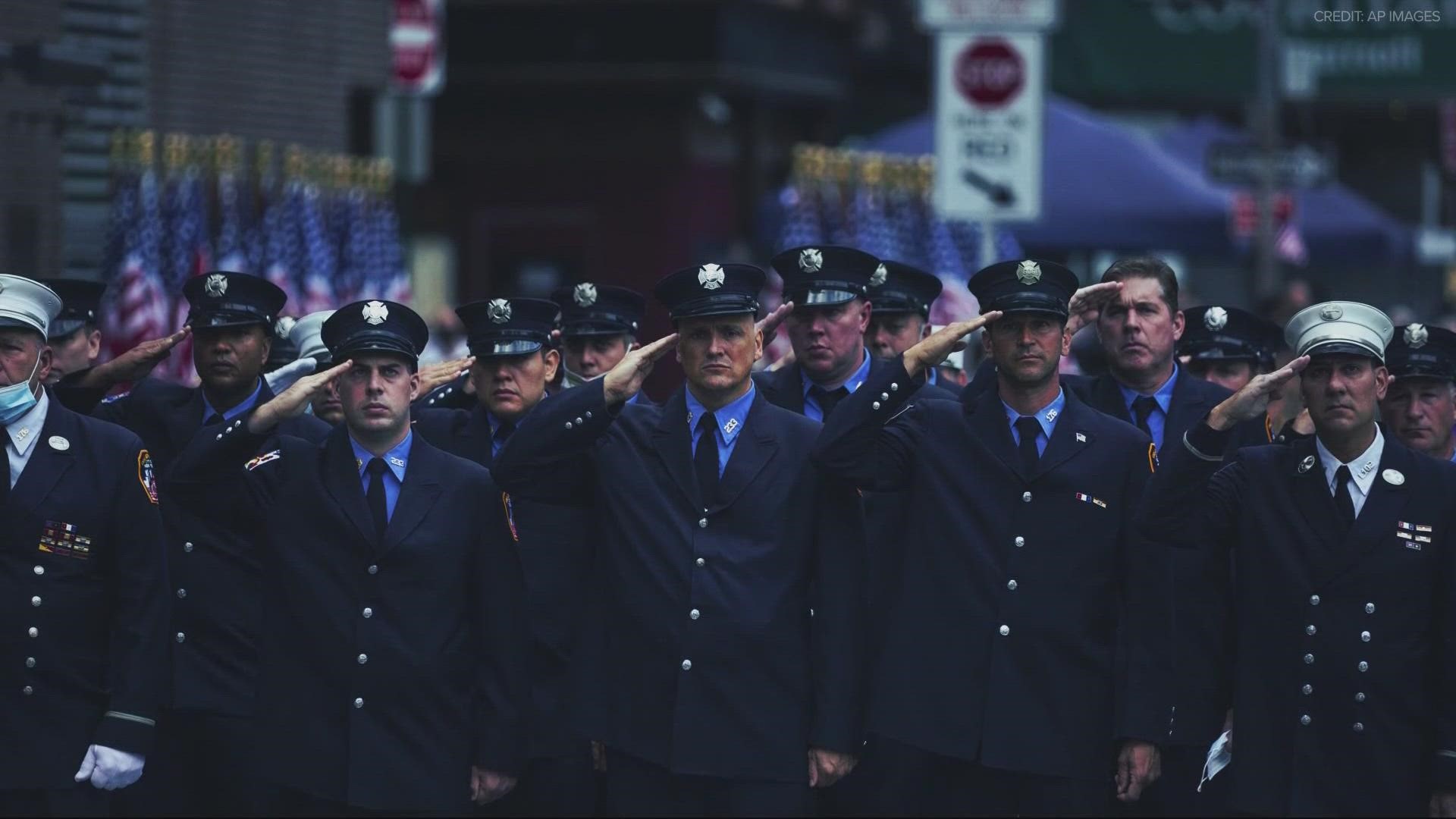PORTLAND, Ore. — It can be hard to believe that 20 years have passed since Sept. 11, 2001. For some of us it’s easy to remember where we were when we heard or saw the news.
But for people who were just babies or hadn’t been born yet, how do they learn about the significance?
We found out that when it comes to state standards in Oregon or Washington, there isn’t a requirement that references 9/11 specifically. Instead, students learn about current events and gain more knowledge the older they get.
Akaila Duncan is an eighth grader in Monmouth. She said she doesn’t remember learning much at all about Sept. 11 before sixth grade.
“I probably learned more about 9/11 at my home than at school,” said Akaila.
Both she and her mom, Janica Duncan, feel it’s important for kids to learn about the historic event.
“It has surprised me. In the past I remember asking my kids like, ‘Oh it's Sept. 11. Did you talk about it in school?’ And nine times out of 10 they'd be like, no,” Duncan said.
Teachers, depending on curriculum and grade level, can use their discretion as to how they choose to address past events like 9/11.
“Even though we're still feeling the repercussions globally, [to] these kids, it's the past. It's ancient history to them,” said Doug Robertson, a fifth grade teacher in the Gresham-Barlow School District.
“I have found in my class that it's really helpful to teach from stories, that kids latch on to stories better,” he said.
Robertson makes it a point not to show videos of the towers collapsing as to not traumatize his young students. He said for him, It’s particularly important to talk about the societal impact of 9/11.
“How people suddenly looked at their neighbors differently and why that was unfair and why it still continues to go through the country,” said Robertson.
He emphasized how adults are trying to fix it but students need to continue making progress.
“And continue to open their minds and not be judgmental about people moving forward. I think that's the most important thing I can do as a fifth grade teacher when it comes to 9/11 is hit that specific kind of sentiment and idea.”
Fourth grade teacher Wendy Mudd, who teaches in the Gladstone School District, plans to focus on the heroes.
“The people pulling together in our communities, you know first respond responders and people like that,” she said.
“We do need to bring kind of a unity back to our community. And really what the American flag meant back then, I would like to see that, the same sort of thing right now. I think we could all use that,” said Mudd.
Both Robertson and Mudd said at their grade levels, there’s a lot of emphasis on core curriculum like reading, writing, and math. Often, teachers don’t have much time to expand beyond the curriculum. But they try to touch on 9/11 as best they can.
"I assume that they will learn more about it in high school,” said Robertson.
Robertson’s assumption is correct. Often, teachers at the high school level will touch on Sept. 11 at the start of school because of the timeliness and Patriot Day, then will circle back to it when they delve deeper into discussions about U.S. history.
David Douglas teaches 11th grade U.S. history at Columbia River High School in Vancouver, Wash. He and his colleagues, Jacob Burton and Jaclyn George-Mayer, spoke with us via Zoom.
“I like to start out the class with just finding out, you know, what have they heard about 9/11,” said George-Mayer.
“The focus I think is just gonna be on providing as much information as possible and really answering students’ questions,” Burton said.
“They've never known a time without living in the post-9/11 world so I'm getting them to think about how the present has been shaped by that event,” said Douglas.
All of the teachers we spoke with said they planned to use outside, age-appropriate sources to help students get a grasp of what happened on Sept. 11.
Teachers said they are hoping to link the historical significance and world-altering events of Sept. 11 to what the students are going through right now. They said 20 years from now, people may be talking about the COVID-19 pandemic in a similar way.

